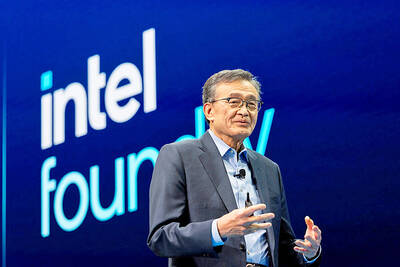Microsoft Corp’s next version of the Windows operating system is almost ready for prime time.
That’s one message chief executive officer Steve Ballmer delivered on the eve of the official opening of the International Consumer Electronics Show (CES).
The world’s largest software maker also announced deals to make its Live Search program the default search engine on more personal computers and mobile phones.
It also showed off a new version of its Ford Sync in-car technology that folds in the voice-operated directory service TellMe, which Microsoft bought in 2007.
For years, the opening keynote at CES belonged to Microsoft chairman Bill Gates, whose status as an industry pioneer justified the sweeping visions of the future he would build into his speech.
Gates passed the mantle on when he stepped down from day-to-day operations at Microsoft last summer, and Wednesday marked Ballmer’s first time making the high-profile address.
“It feels like we’ve entered a period of reduced expectations, a time when we may be tempted to temper our optimism and scale back our ambitions,” Ballmer said, in a nod to the recession.
“But no matter what happens with the economy or how long this recession lasts, I believe our digital lives will only continue to get richer,” he said.
Ballmer said Microsoft would continue to invest more in research and development than its technology peers.
The CEO announced that a nearly final “beta” test version of Windows 7 would be available today for regular PC users to download and tinker with.
The new operating system — which could be available for purchase on PCs within a year — uses much of the same underlying technology as its predecessor, the much-maligned Vista. But Windows 7 aims to resolve many problems PC users had with Vista.
For instance, Microsoft pledges to make it easier to install peripheral devices and to have the software pump out fewer annoying warnings and notifications.
Ballmer also pledged that Windows 7 would boot faster and drain laptop batteries more slowly.
“I believe Windows will remain at the center of people’s technological solar system,” Ballmer said. “We’re putting in all the right ingredients — simplicity, reliability and speed — and we’re working hard to get it right and to get it ready.”
Ballmer is hoping to boost the number of people using Microsoft’s Live Search engine, which ranks well behind Google Inc and Yahoo Inc in popularity, through a deal with PC maker Dell Inc.
Dell will put a special Live Search browser toolbar and Windows Live programs, including Microsoft’s e-mail and instant-messaging applications, on most of the consumer and small-business PCs that it sells worldwide.

Mercuries Life Insurance Co (三商美邦人壽) shares surged to a seven-month high this week after local media reported that E.Sun Financial Holding Co (玉山金控) had outbid CTBC Financial Holding Co (中信金控) in the financially strained insurer’s ongoing sale process. Shares of the mid-sized life insurer climbed 5.8 percent this week to NT$6.72, extending a nearly 18 percent rally over the past month, as investors bet on the likelihood of an impending takeover. The final round of bidding closed on Thursday, marking a critical step in the 32-year-old insurer’s search for a buyer after years of struggling to meet capital adequacy requirements. Local media reports

US sports leagues rushed to get in on the multi-billion US dollar bonanza of legalized betting, but the arrest of an National Basketball Association (NBA) coach and player in two sprawling US federal investigations show the potential cost of partnering with the gambling industry. Portland Trail Blazers coach Chauncey Billups, a former Detroit Pistons star and an NBA Hall of Famer, was arrested for his alleged role in rigged illegal poker games that prosecutors say were tied to Mafia crime families. Miami Heat guard Terry Rozier was charged with manipulating his play for the benefit of bettors and former NBA player and

TECHNOLOGICAL RIVALRY: The artificial intelligence chip competition among multiple players would likely intensify over the next two years, a Quanta official said Quanta Computer Inc (廣達), which makes servers and laptops on a contract basis, yesterday said its shipments of artificial intelligence (AI) servers powered by Nvidia Corp’s GB300 chips have increased steadily since last month, should surpass those of the GB200 models this quarter. The production of GB300 servers has gone much more smoothly than that of the GB200, with shipments projected to increase sharply next month, Quanta executive vice president Mike Yang (楊麒令) said on the sidelines of a technology forum in Taipei. While orders for GB200 servers gradually decrease, the production transition between the two server models has been

BETTER THAN EXPECTED: The firm’s Q3 results exceeded its projections, based on ‘the underlying strength of our core markets,’ chief financial officer Dave Zinsner said Intel Corp returned to profitability and gave an upbeat revenue forecast after PC demand grew, suggesting that it is making progress on a long and challenging comeback attempt. In the third quarter, revenue rose 3 percent to US$13.7 billion. The Santa Clara, California-based company posted its first quarterly net income since the end of 2023, with earnings per share of US$0.23, excluding some items. Analysts had estimated sales of US$13.2 billion and earnings per share of US$0.01 on average, according to data compiled by Bloomberg. Fourth-quarter sales would be roughly US$13.3 billion, the company said in a statement on Thursday. Intel shares gained about